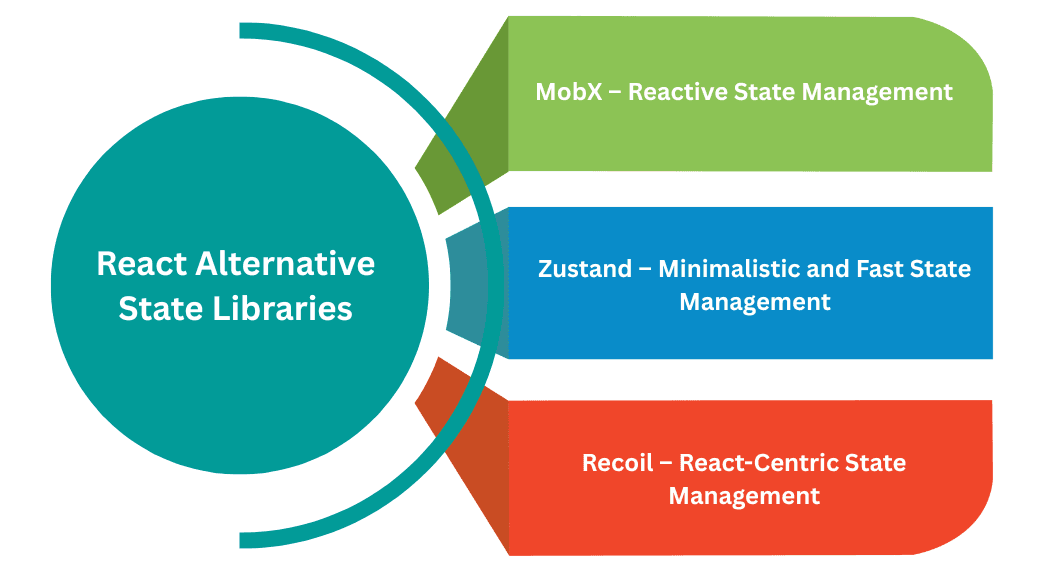Clean • Professional
While Redux and Context API are widely used for state management in React, they aren’t the only solutions. Depending on your project’s complexity, alternative state management libraries like MobX, Zustand, and Recoil can offer simpler syntax, better performance, and more flexibility.

MobX is a reactive state management library that automatically tracks changes in state and updates your components. Unlike Redux, MobX doesn’t require boilerplate code like actions or reducers.
Example – Counter with MobX:
import { makeAutoObservable } from "mobx";
import { observer } from "mobx-react-lite";
class CounterStore {
count = 0;
constructor() {
makeAutoObservable(this);
}
increment() {
this.count += 1;
}
decrement() {
this.count -= 1;
}
}
const counterStore = new CounterStore();
const Counter = observer(() => (
<div>
<h2>Count: {counterStore.count}</h2>
<button onClick={() => counterStore.increment()}>+</button>
<button onClick={() => counterStore.decrement()}>-</button>
</div>
));
export default Counter;
Why MobX?
Zustand is a lightweight, flexible state management library that uses hooks to manage global state. It’s extremely easy to set up and works well with both small and large projects.
useStore) for accessing state.Example – Counter with Zustand:
import create from "zustand";
const useStore = create((set) => ({
count: 0,
increment: () => set((state) => ({ count: state.count + 1 })),
decrement: () => set((state) => ({ count: state.count - 1 })),
}));
function Counter() {
const { count, increment, decrement } = useStore();
return (
<div>
<h2>Count: {count}</h2>
<button onClick={increment}>+</button>
<button onClick={decrement}>-</button>
</div>
);
}
export default Counter;
Why Zustand?
Recoil is an official React state management library from Facebook, designed to work seamlessly with React’s concurrent mode and hooks.
Example – Counter with Recoil:
import { atom, selector, useRecoilState, RecoilRoot } from "recoil";
const countState = atom({
key: "countState",
default: 0,
});
function Counter() {
const [count, setCount] = useRecoilState(countState);
return (
<div>
<h2>Count: {count}</h2>
<button onClick={() => setCount(count + 1)}>+</button>
<button onClick={() => setCount(count - 1)}>-</button>
</div>
);
}
export default function App() {
return (
<RecoilRoot>
<Counter />
</RecoilRoot>
);
}
Why Recoil?